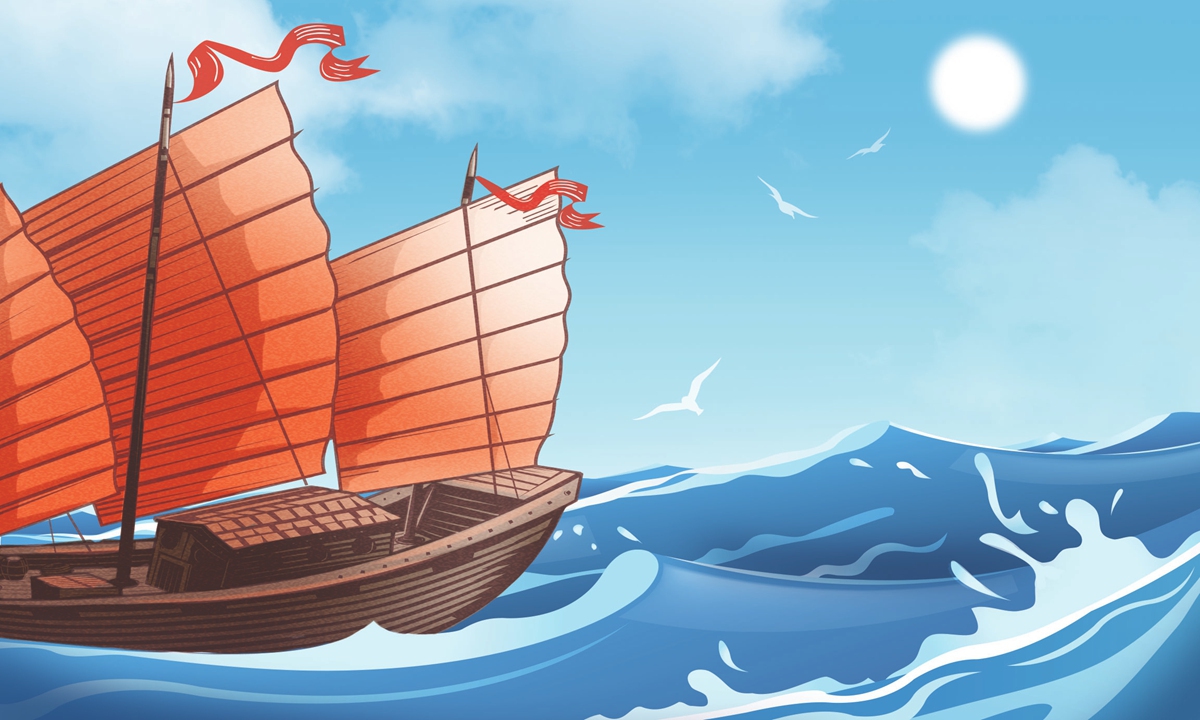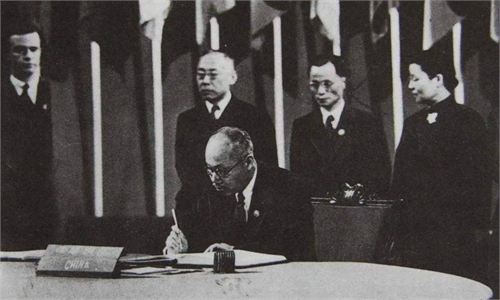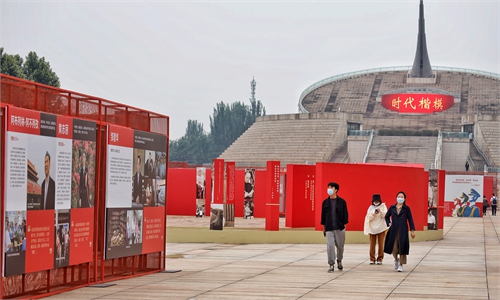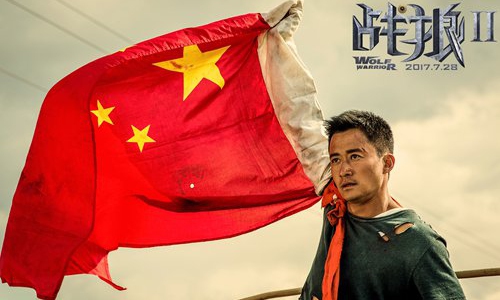
Illustration: Liu Rui/GT
Editor's Note:Over the past 100 years since the founding of the Communist Party of China (CPC) in 1921, the party has repeatedly reversed China's fate and led the country through difficulties and challenges to achieve rapid development. Why has the CPC been able to do so? How has the CPC heroically deflected Western hype when faced with campaigns of hysteria? To answer these, Global Times (GT) reporter Yu Jincui talked to Danilo Türk (Türk), former president of Slovenia, in a written interview about these pressing issues.
GT:You believe the rise of China has been and continues to be a positive global phenomenon. What role do you think the CPC has played in the process of China's rise, and how can the CPC lead China's ascent to better contribute to the world?
Türk: The rise of China has contributed very significantly to the development of the world in the last decades, and the CPC has been central to this contribution. Gradually, the world has become used to the indispensable role of China with regard to all major issues of our time. Obviously, the CPC will continue to lead China. Leading will continue to mean setting the priorities and insisting on results. For example, the decisions of the CPC on the ways to address the vitally important issues of global warming, technological innovation and poverty elimination will be critical to further development of China and, consequently, to the future of the world.
GT:You have lots of experiences in communications with Chinese officials. Most Chinese officials are CPC members. During your interactions with them, what characteristics have impressed you the most?
Türk: I have travelled to China regularly in the past 20 years and have met both the leaders of China as well as a number of regional and local officials and CPC members. What impressed me the most was their strong commitment to agreed policies and, above all, to achieving the stated results. The result oriented and meritocratic nature of leadership is very visible and is the key to their success. Results are of course very important by themselves. But commitment to results reaches even further. Achieving the stated objectives, and having real results is the key to legitimacy of leadership. One could say that this type of legitimacy, sometimes described as "performance legitimacy" is a particularly strong type of legitimacy. We have all seen this in the past year when strong leadership of China and measurable results in overcoming COVID 19 have impressed the world.
GT:In popular Western narratives, the CPC is a "menace" to the West. For instance, former US secretary of state Mike Pompeo called the CPC a "central threat of our times." Where does the misunderstanding come from? Is there a failure to grasp the nature of the CPC in the West?
Türk: I don't think that this kind of thinking is generally shared in the West. However, it is true that ideological prejudice plays a significant role in many political circles. And there is a fear that the West is losing its dominant position in the world. The key question for the West and for China is how to lead without the ambition to dominate. Historically, no dominant power has ever abandoned domination easily. A degree of competition, rivalry and tension between the established and rising powers is unavoidable. The ability to lead without dominating does not come easily. It requires great wisdom, careful balancing of power and time to mature. This is not an easy process and it is particularly difficult for an established power. The ability to grasp the nature of the rising power is clouded by political interest and ideological prejudice. The only remedy to that is an adequate system of international cooperation. Such a system must be developed in parallel with the changing balance among the leading powers. It must include the necessary and commonly agreed norms of conduct, good and reliable communications, credible reporting and, wherever possible, joint plans of action. This should be possible in our era, notwithstanding the ideological differences. We all share the same big problems of the 21st century, such as global warming and the current pandemic. Solutions for these problems depend on the quality of global cooperation.
GT:In your opinion, what are the major differences between the CPC and Western non-communist political parties?
Türk: The Western, non-communist parties are in a state of turmoil and constant change. In Europe in particular, some of the traditionally strong political parties have been seriously weakened and some even ceased to exist. New political parties are emerging. On the other hand, some of the traditionally existing parties, such as those in the United States, are changing. We live in an era of political convulsions in the West. Historically, this is type of situation is not new and is not necessarily bad. While we have seen the rise of nationalism in this tumultuous period, we must also notice the rising importance of the political parties that put green development and social justice at the center of their programs. This is promising.
In China, at the same time, the CPC maintains stability and predictability, as well as leadership focusing on growth and development of the country. The interesting aspect today is the question of adaptation of the CPC to the vision of, "socialism with the Chinese characteristics for the new era", as was declared at the 19th National Congress of the CPC. The "new era" is evolving and requires a high degree of adaptability of politics and constant innovation in matters of social and political participation in decision making.
GT:The CPC was founded in 1921. Over the past 100 years, the party has led China through various wars, Western isolation and suppression, and reforms to achieve rapid development. Why can the CPC repeatedly reverse China's fate? What does this indicate?
Türk: Indeed, the past century has been one of convulsions and great tragedies. Societies in all parts of the world have changed completely. In 1947, the great sociologist Fei Xiaotong explained, in his work "From the Soil", that China was, at that time, above all else a rural society. The CPC has led the colossal transformation of China from the rural, agrarian society to an urban, industrial and post-industrial power. This was achieved by the revolution and subsequently by opening and reforms. The CPC has led all these processes - with all the problems, suffering, sacrifices and achievements. This indicates some fundamental features of Chinese development: The resilience of the Chinese people and the ability of the CPC to find answers to the problems as they arise. Big mistakes have been made too. But the amount of experience gained in the last century should enable the CPC to find the necessary answers to the problems of the new era without committing major mistakes.
GT:Western countries like the US constantly attack the CPC and have imposed sanctions on some party members. However, this has instead increased the Chinese people's support for the CPC. What misjudgments have they made?
Türk: Personally, I have very serious doubts about sanctions. Even if sanctions are imposed by the United Nations Security Council and are therefore fully legitimate, they remain a blunt instrument and rarely succeed. Measures imposed by a single state or a group of states against other states usually lack legitimacy and are only an expression of power politics. Small states never impose "sanctions" on the bigger ones. Sanctions by individual states or groups of states are most often both ineffective and immoral. Yet they may be politically convenient for the countries resorting to sanctions. A critical Western politician once remarked that, "sanctions are imposed when big countries don't know what to do". As a result, such "sanctions" are, in effect, only a form of hostile measures. They are resented by the people in the countries on the receiving end and trigger countermeasures. This is dangerous because it may lead into a downward spiral from which it is very difficult to exit. Right now the West will have to think deeply about the effects of their measures taken earlier this year against China, as well as about the Chinese countermeasures, and find a way out of the threatening downward spiral.
GT:China believes countries with different political systems can coexist and emphasizes win-win results in the development process. But Washington and some other Western countries try to weaken China's power by taking different methods, from "color revolutions" to imposing military pressure. What kind of risks will such crackdowns on China bring to the world?
Türk: Henry Kissinger, the old sage of both American and global diplomacy, recently proposed a very important basic principle for the future US - China relations: "…A confrontation which challenges the basic structure of either side must be avoided….", insists Kissinger. This is a very wise proposition. It is natural that countries exchange critical views about other states. China has been very restrained in that regard and wisely so. The West likes to criticize others but must now avoid what I would call "an ideological trap", that is, an impression that the West is entitled to prescribe the fundamentals of organization of other states. Sovereign equality is the basic principle of the United Nations and of a peaceful world in general. Human rights can be strengthened through cooperation, not imposition. The rule of law is in the interest of everybody, but must be built patiently and through dialogue and cooperation. Western democracies have much work to do at home to improve their own democratic systems. That is where the priorities should be.



